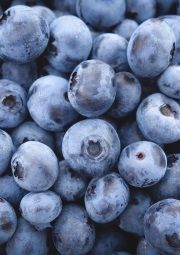Are raw oats healthy?
Oats are a versatile and popular ingredient in a range of recipes and a recent article, titled “Is Eating Raw Oats Healthy? Nutrition, Benefits, and Uses” by Healthline suggests that they also support our health.
As oats are processed, in part through a heating process, you actually don’t have to reheat them in order to eat them. However, it is recommended to soak them in recipes such as Overnight Oats in order to make them easier to digest and stop them from building up in your stomach or intestines.
Many people are aware that oats are a good source of fibre and protein, with an 81-gram serving providing 8 grams of fibre and 11 grams of protein, but not many people know that they also boast an impressive vitamin and mineral profile. Just 81-grams of oats provides 27% of the recommended daily amount of magnesium, phosphorus and zinc, and 43% of the recommended amount of selenium.
How our choice of diet can weaken our gut immune system
It is widely considered that nutrition plays a large part in your overall health but a recent report by Science Daily has found that our choice of diet can actually weaken our gut immune system.
The report from the University Health Network suggests that a high fat diet influences one component of the gut immune system called B cells and, specifically, those that produce a protein called IgA. Lead author and one of the researchers on the study, Helen Luck, said of the findings, “IgA is naturally produced by our bodies and is crucial to regulating the bacteria that live in our gut. It acts as a defense mechanism that helps neutralize potentially dangerous bacteria that take advantage of changes to the environment, such as when we consume an imbalanced or fatty diet.”

Health benefits of bilberries
Bilberries, or blueberries as they are known in the UK, are a popular breakfast and yoghurt topping but they also can support our health in a number of ways.
This article “9 Emerging Health Benefits of Bilberries” highlights the nutritional profile of the small blue fruit and, as well containing a large amount of water like many other hydrating foods, they also deliver an impressive amount of manganese and vitamins K and C.
This means that blueberries can contribute to normal energy-yielding metabolism, the maintenance of normal bones and protect cells from oxidative stress from the manganese content, contributes to normal blood clotting and the maintenance of normal bones through their vitamin K content and contributes to a reduction in tiredness and fatigue and the normal function of the immune system thanks to the vitamin C.
Share your thoughts
Agree with the findings in this week’s Nutrition News? Share your thoughts with us on Facebook and Twitter.
 Alison is Director and Founder of Metabolics who writes about Metabolics updates, events and natural healthcare. Her experience and passion for natural supplements and healthcare comes from her years of experience as a practising osteopath, having founded Metabolics in her search for high quality, natural products in her own work. Alison has been a qualified and practising Osteopath since 1981 and regularly gives seminars on a range of healthcare subjects to the wider practitioner community helping share her knowledge and experience.
Alison is Director and Founder of Metabolics who writes about Metabolics updates, events and natural healthcare. Her experience and passion for natural supplements and healthcare comes from her years of experience as a practising osteopath, having founded Metabolics in her search for high quality, natural products in her own work. Alison has been a qualified and practising Osteopath since 1981 and regularly gives seminars on a range of healthcare subjects to the wider practitioner community helping share her knowledge and experience.


